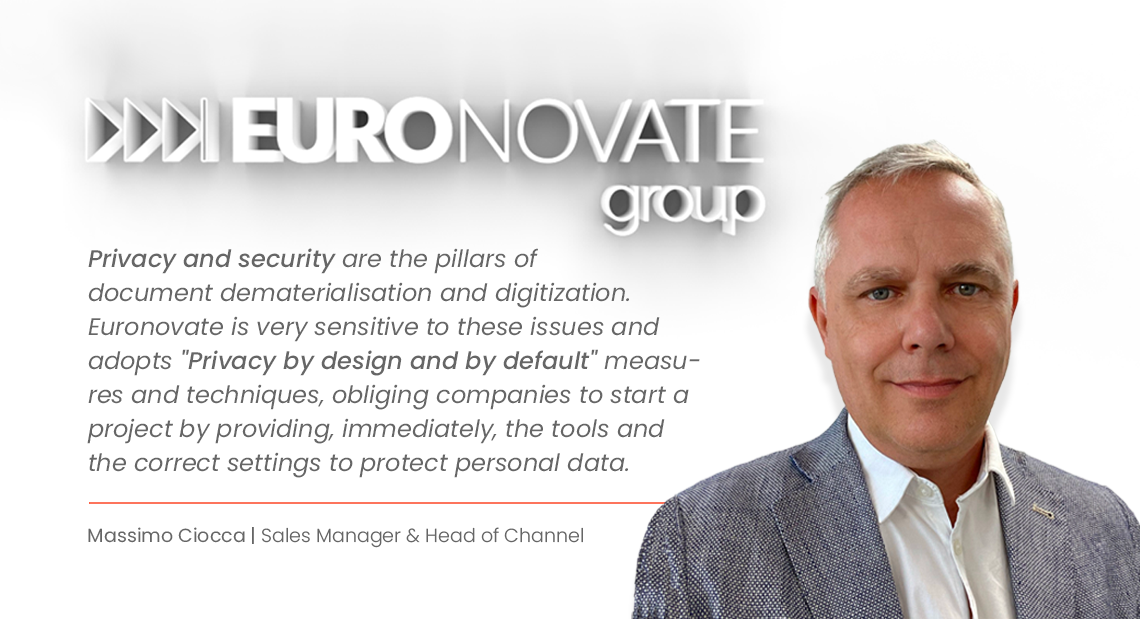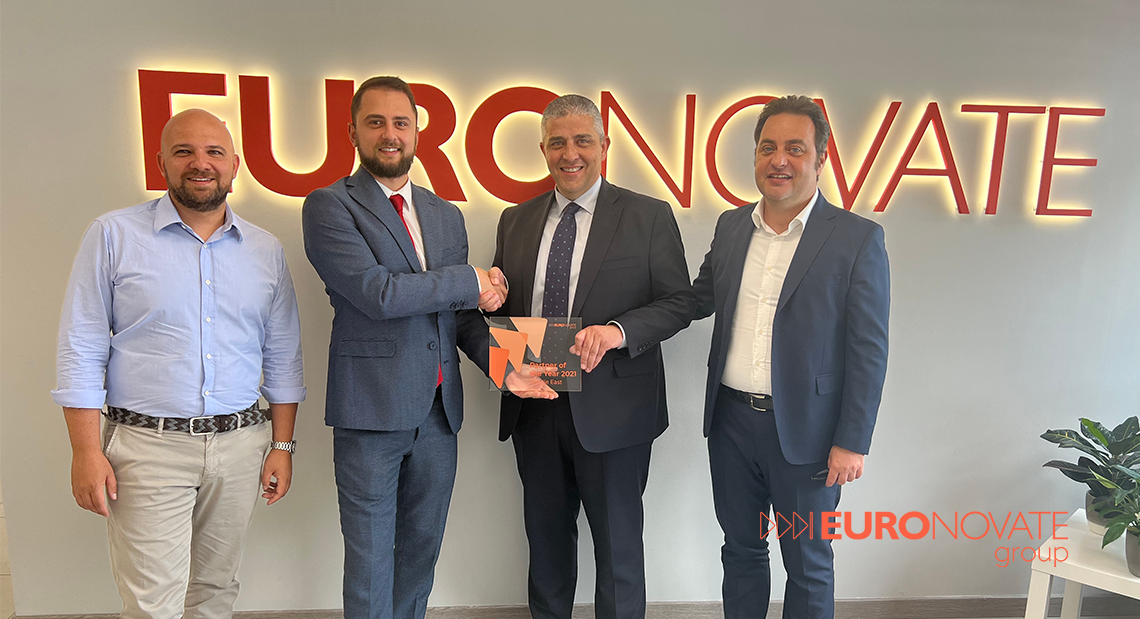

Interview with Massimo Ciocca: Digitization in Healthcare
Home / Press Releases - Euronovate Group / Interview with Massimo Ciocca: Digitization in Healthcare
Interview by Donato Corvi published in 01Health.it, 11/10/2022
The digital transformation is profoundly changing the healthcare sector, and also the document workflow which is very important in this area. At what point are we in healthcare from this perspective, and what are the challenges still in the field?
The digital transition is a topic that emerges very often in healthcare conversations. The different but connected issues of document digitization and dematerialisation are at the center of many discussions for the computerization of the Italian public administration and health care.
CNIPA’s resolutions on substitutive conservation, Italia Digitale’s guidelines for the dematerialization of the informed consent, and the Covid emergency situation gave further push and encouraged the use of the digital document.
Today many healthcare realities such as ASLs, hospitals, RSAs, public and private diagnostic centers have started the process that aims to create a flow of digital documents with full legal value. Firstly it will work as a support and then, in the long term, will replace the normal paper documentation in any public or private activity’s archives. In the hospital, this revolution began in the last decades of the last century with the development of medical image archiving systems (PACS) and subsequently with the creation and progressive integration of individual patient’s clinical documents in a single system: the electronic health record (ESF) and electronic signature.
Particular attention should be given to informed consent which is a contractual obligation and the violation of the duty of information gives rise to specific responsibilities.
In the traditional management of paper documents, handwritten signature represents the legal value of the document. It is the signature affixed by anyone who signs a document, considered a distinctive element with unique and personal characteristics. The dematerialization allows to produce digital documents with full legal value and therefore it is necessary to adopt a system that allows to ensure in a clear and univocal way the subscriber of a document.
Documents’ dematerialization requires new technologies and skills. What does Euronovate Group offer to organizations?
Documents dematerialization is a complex issue, where technology, operational practices and law intersect, and it is therefore an opportunity in terms of efficiency and cost savings that is not easy to seize and that is often overlooked or not addressed with due attention. .
Part of the dematerialization process is the electronic signature, able to satisfy the fundamental requirement of the traceability of the signature itself to the subscriber until proven otherwise, and above all the Advanced Electronic Signature (FEA) which opens the way to new technologies that allow the use of the IT document, in place of the traditional paper sheet, in different application contexts. In particular, the use of biometric technologies and therefore of the Graphometric Signature (FG) is authorized, for the acquisition of the Advanced Electronic Signature, allowing the effective dematerialization of documents signed by subjects without a qualified electronic signature.
Euronovate Group is an international reality, leader in the production of digital identity solutions for simple, advanced and qualified electronic signature of our intellectual property.
We use an end-to-end approach, centralized on customers’ real needs and requirements, during the entire project phase, from the analysis to the development and implementation of highly innovative software and hardware components, which allow us to structure a range of offers that includes:
- Identity management that ensures the organizational process to identify, authenticate and authorize individuals or groups who have access to applications.
- Identity verification which ensures that behind any process there is a real person proving that he is who he claims to be.
- Remote or through graphometric pad electronic signature solutions and processes that allow you to sign and create online paths, sign documents and establish secure communications with public administrations, including the redefinition of associated digital processes, for example through authentication with SPID, to obtain efficiency, practicality, saving time and resources.
- Integration with any replacement storage solution already in use by the various bodies to ensure the legal validity of an IT document over time
Privacy and security are essential in the healthcare sector; how do you support your customers from this point of view?
Privacy and security are the pillars of document dematerialisation and digitization that are based on the GDPR legislation. If the protection of relevant information represents an obvious need for the company, the latter becomes a regulatory obligation when the information stored in electronic format contains personal data and, even more important, sensitive or particular data such as biometric data, health data.
Euronovate is very sensitive to these issues and adopts "Privacy by design and by default" measures and techniques, which impose on companies the obligation to start a project by providing, immediately, the tools and the correct settings to protect personal data. Euronovate carries out the DPIA where required by law. The protection of personal data must place the user at the center, thus obliging the data controller to provide effective protection from a substantial, not just a formal, point of view. Furthermore, from the beginning Euronovate has chosen to appoint a DPO to strengthen its expertise in the field of the GDPR.
On the subject of security, we implement "Security by design" that is the design of products aimed at limiting, from the very first phase of creation, possible system vulnerabilities. All our solutions are designed and implemented with the "best practices" in this regard.
Almost all analysts agree that the PNRR is a unique historical opportunity to project the Italian health system into the future. To what extent does Euronovate Group expect to receive benefits?
The National Recovery and Resilience Plan (PNRR) has allocated 221.1 billion euros to our country, of which over 20 billion euros will go to healthcare and the most significant portion is dedicated to investments in innovation, research and digitalization of the NHS .
It is actually a historic opportunity that allows various entities to innovate the hospital technology park, digitize the various health services, invest in research and training of health personnel for safer, fairer and more sustainable health.
Numerous ASLs and hospitals have already started the digital transition where our contribution has been very strong and where we have found numerous benefits in terms of efficiency, eco-sustainability and cost savings.
RELATED BLOG POSTS



Jordanian Business Consult, Euronovate's new partner in the Middle East
Amman, September 2021
